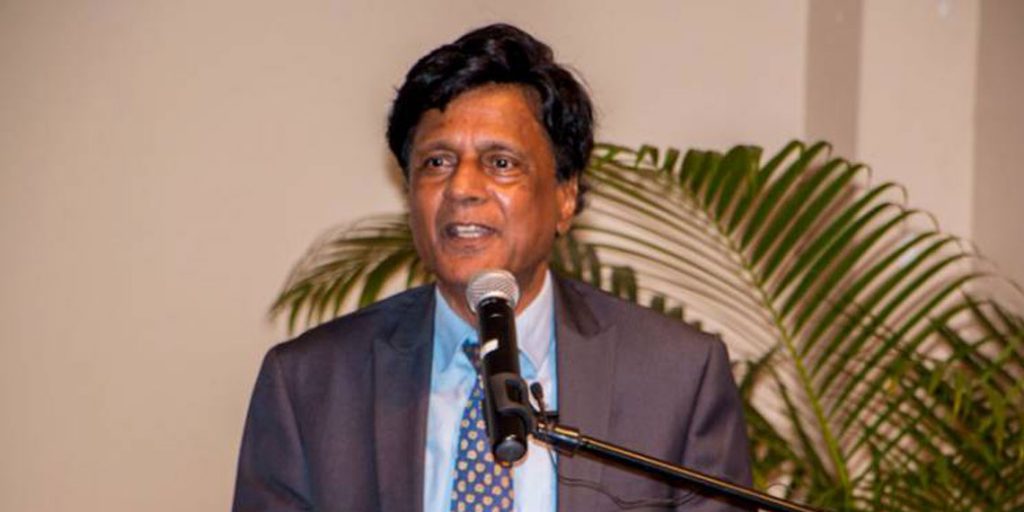My call last week for the May 5 Public Holiday – “Arrival Day” – to be renamed “Indian Arrival Day”, elicited several objections. One interlocutor even claimed I was “unpatriotic”. This is quite ironic since one of the major reasons for the decades-long call was to assert that the descendants of Indian Indentureds had arrived “home” and were asserting full Guyanese citizenship – cultural as well as political.
Their challenge was the Creole Culture into which they were thrown and told to assimilate was dominated by European forms and values. This had been hegemonically imposed on the Africans during slavery, during which only remnants of African cultures were retained. However, from the beginning of the 20th century several organizations were launched by leaders like Marcus Garvey (Jamaica) and WEB DuBois (USA) to valorize African culture and these influenced cultural developments in Guyana.
Unlike African Guyanese, who had experienced an abyssal rupture with Africa because of those inhuman conditions of their enslavement, Indian indentureds maintained connections with India through several mechanisms. One being the continuous stream of new “culture bearing” indentureds, even though they helped depress wages due to excess labour.
There were also the Commissions sent out by the Indian Government to examine their living conditions; the Immigration Agent (“Crosby”) to whom complains could be lodged; several Islamic and Hindu missionaries who arrived in the 20th century and finally, the contracted return passage to India. By the turn of the 20th century, several organizations were also launched in the Indian community to maintain their culture. However, after the last return ship (SS Resurgent in 1955) and news of how India was different from their idealization, all local Indians now totally accepted Guyana as their homeland. And while they retained much of their ancestral cultures, the latter had also been adapted to their new circumstances. They had helped create a culturally plural Guyanese society.
However, that last ship also coincided with a fateful turn in the political landscape which saw a split in the nationalist PPP that was calculatedly multiracial in its executive and its following. Because of the split of the party that year, fueled by Forbes Burnham’s ambitions, both he and Jagan admitted that by and large by the 1957 elections, the base had split along African and Indian ethnic lines. That trend continued in 1961 elections and was cemented in 1964 after ethnic riots in the preceding three years. The PNC that was handed power at the end of 1964 and continued to hold on to that power unbroken until 1992, was dominated politically by African Guyanese.
But there was a cultural component of the changes that served to exclude Indian Guyanese from the definition who was “Guyanese” and its nexus with power. During the 1960’s and 1970’s, the West Indies, including Guyana, was swept by the Black Power movement out of the USA. In TT, even though Eric Williams had programmatically institutionalized African Trinidadian culture as “national culture”, an army unit staged a rebellion in1970 under the Black Power banner. The latter ideology had demonstrated that groups – identified racially (and analogously ethnically, sexually gender etc) – could also be oppressed along those lines through exclusion from the power relations. Intersectionally, the oppression had to also be fought along those lines. The army unit in TT was making a distinction between political and cultural citizenship: even though people may have full legal rights of citizenship, barriers to cultural citizenship could remain and become markers for discrimination. In Guyana, the African Society for Cultural Relations with Independent Africa (ASCRIA) founded in 1964 and aligned with the PNC, solidified African Guyanese support.
The PPP under Dr. Jagan, supported by most Indian Guyanese, had declared itself a Marxist party in 1969 and gave short shrift to the cultural question. When the WPA was launched in 1974 with ASCRIA and IPRA ostensibly as “African and Indian” groups, the leader of the latter, Moses Bhagwan confirmed to this writer that his position was that Indians were politically excluded by the PNC but their cultural oppression was not on his radar. With the return of free and fair elections in 1992 and the PPP to office, Indian groups including JAGUAR Committee for Democracy (JCD) and ROAR raised the question of cultural citizenship of Indian Guyanese.
The call for Indian Arrival Day was one project for Indian Guyanese to claim their Cultural Guyanese Citizenship – equal to those of other groups in the mosaic of a multicultural Guyana.
